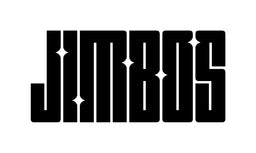The Safest Way to Dry a Car After Washing
Did you know most swirl marks don’t come from washing — they come from drying your car incorrectly? The drying stage is the final step in your wash, and if you rush it or use the wrong tools, you can undo all the effort you put into cleaning. In this guide, you’ll learn the safest drying techniques using microfiber towels and blowers, and why tools like the Massive Drying Towel are essential for swirl-free results.
Why Drying Matters
When you wash your car, water carries away dirt, dust, and soap. But if your drying towel doesn’t absorb it properly, those contaminants get dragged across your paint. The result? Fine scratches and swirl marks that ruin your shine. The goal is simple: remove water without adding friction.
The Golden Rules of Safe Drying
- Use the right towel: A plush microfiber towel absorbs water instead of pushing it around.
- Minimize wiping: The less you touch the paint, the better.
- Add lubrication: A drying aid or ceramic spray reduces friction dramatically.
- Work top to bottom: Gravity helps prevent re-contamination.
Safe Drying Techniques
1. Sheet Rinse
Before you even touch the paint, use low-pressure water to “sheet” water off panels. This leaves fewer droplets for your towel to pick up.
2. Blotting Method
Instead of rubbing, lay the towel flat, press gently, and lift. This technique prevents dragging grit across the surface.
3. Pull-Through Technique
Lay a large towel like the Massive Drying Towel across the hood, then gently pull it toward you. The towel absorbs water in one motion.
4. Blow Drying
For the safest option, use a blower or compressed air to push water off the car without contact. This is especially effective for grills, mirrors, and trim pieces.
Comparison: Drying Methods Ranked
| Method | Safety | Efficiency | Scratch Risk |
|---|---|---|---|
| Bath Towel / Chamois | Poor | Medium | High |
| Microfiber Drying Towel | Excellent | High | Low |
| Blotting with Microfiber | Excellent | Medium | Very Low |
| Blower / Air Dry | Perfect | High | None |
Best Tools for Drying
- Massive Drying Towel — holds huge amounts of water for one-pass drying.
- Drying Aid Spray — adds slickness and boosts protection during drying.
- Blower / Air Dryer — ideal for touchless drying and tight areas.
Pro Tips
- Always wash and dry in the shade to avoid water spots.
- Use multiple towels for large vehicles to avoid saturation.
- Wash towels separately with microfiber-safe detergent.
- Pair drying with a ceramic spray like Tough As Shell for added slickness and shine.
Related Posts
- Why Drying Your Car Causes Swirls
- Do Drying Towels Really Prevent Swirls?
- How to Avoid Swirl Marks When Washing Your Car
Want more tips? Check out the hub guide: 5 Car Washing Mistakes That Cause Swirls (and How to Avoid Them).
Dry Your Car the Safe Way
Protect your paint during the most dangerous step of washing. Use the Massive Drying Towel for safe water absorption and finish with Tough As Shell for a slick, protected surface.
Buy Massive Drying Towel Buy Tough As Shell Shop on AmazonFAQs
What’s the safest way to dry a car?
The safest methods are using a microfiber drying towel with blotting or a touchless blower for zero contact.
Are chamois safe for drying?
No. Chamois drag dirt and cause micro-scratches. Use microfiber instead.
Do I need a blower to dry safely?
No, but a blower is the safest option. A massive microfiber towel is the next best choice.
Should I use a drying aid?
Yes. A ceramic spray like Tough As Shell reduces friction, adds slickness, and boosts protection.
How do I keep my towels safe for paint?
Wash them separately, never use fabric softener, and replace them when they lose softness.



